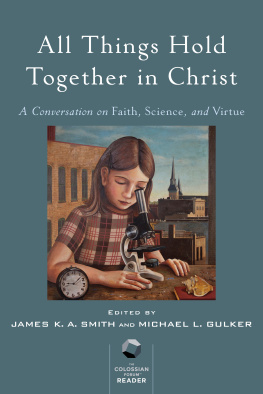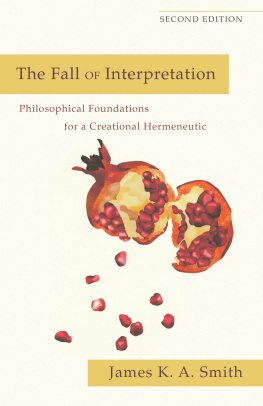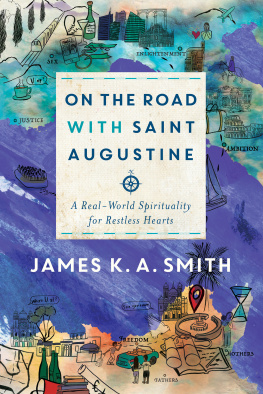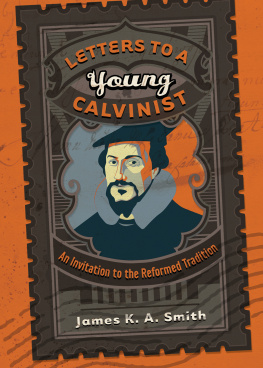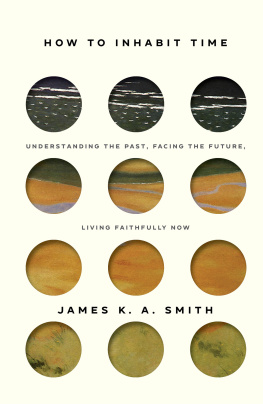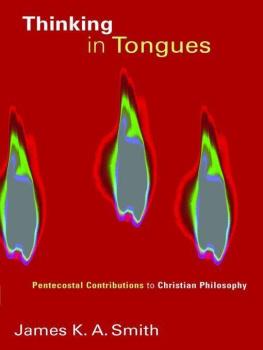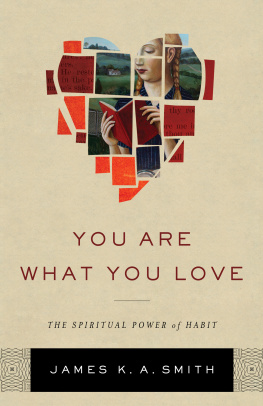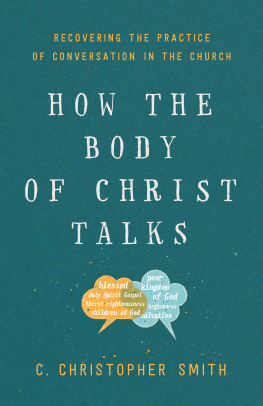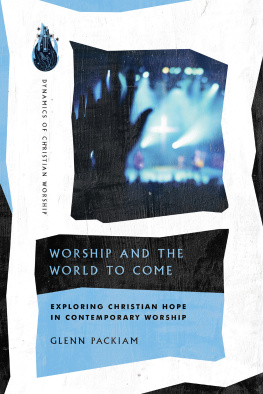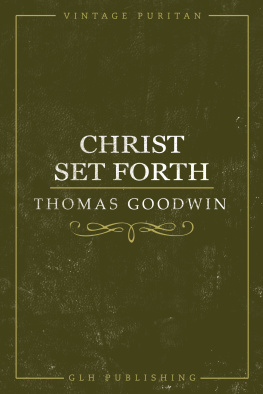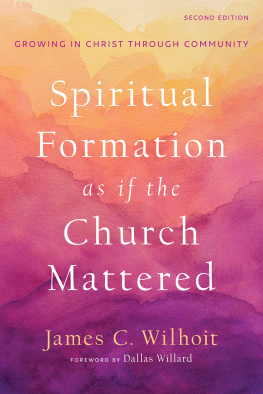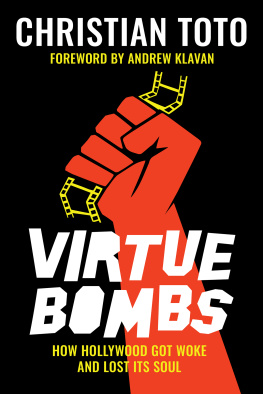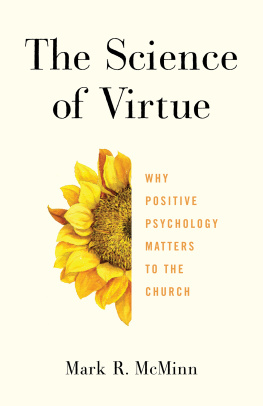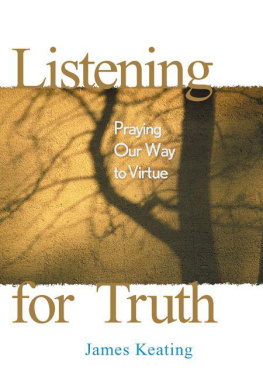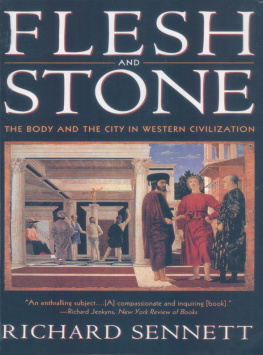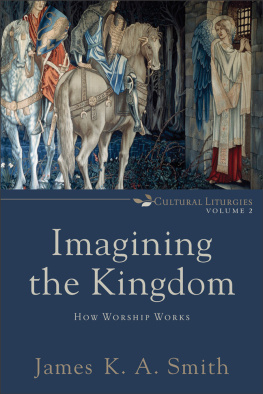P.O. Box 6287, Grand Rapids, MI 49516-6287
All rights reserved. No part of this publication may be reproduced, stored in a retrieval system, or transmitted in any form or by any meansfor example, electronic, photocopy, recordingwithout the prior written permission of the publisher. The only exception is brief quotations in printed reviews.
Library of Congress Cataloging-in-Publication Data is on file at the Library of Congress, Washington, DC.
Unless otherwise indicated, all Scripture quotations are from the New Revised Standard Version of the Bible, copyright 1989, by the Division of Christian Education of the National Council of the Churches of Christ in the United States of America. Used by permission. All rights reserved.
Each chapter in this book has been reproduced by the permission of its original publisher. For the sake of consistency there have been alterations to punctuation and documentation. Cross-references that appeared in the original version, but are not pertinent in this context, have been removed herein.
Contents
Cover
Title Page
Copyright Page
Preface by Michael Gulker
Introduction by James K. A. Smith
Part 1: Creating a Community for the Conversation: Ecclesiology and Worship
1. The Church as Church: Practicing the Politics of Jesus
Rodney Clapp
2. Friends of God and Friends of Gods Friends
Samuel Wells
3. Friendship and the Ways to Truth
David Burrell
4. Worship Is Our Worldview: Christian Worship and the Formation of Desire
James K. A. Smith
5. Common Prayer
Shane Claiborne, Jonathan Wilson-Hartgrove, and Enuma Okoro
Part 2: Putting On Christ: Formation in Virtue
6. The Master Argument of MacIntyres After Virtue
Brad Kallenberg
7. The Nature of the Virtues
Alasdair MacIntyre
8. The Church as a Community of Practice
Jonathan R. Wilson
Rebecca DeYoung
10. Cultivating Gratitude: Pray without Ceasing
Paul Griffiths
11. Why Christian Character Matters
N. T. Wright
Part 3: Come Let Us Reason Together: Tradition-Based Rationality
12. The Rationality of Traditions
Alasdair MacIntyre
13. Aquinas and the Rationality of Tradition
Alasdair MacIntyre
14. The Epistemic Priority of Jesus Christ
Robert Barron
15. Reading Scripture with the Reformers
Timothy George
Part 4: All Things Hold Together in Christ: Exploring Gods World
16. Come and See: A Christological Invitation for Science
Mark Noll
17. Encountering Gods World: Curiositas vs. Caritas
Paul Griffiths
18. The Religious Path to Exclusive Humanism: From Deism to Atheism
James K. A. Smith
19. Natural Theology, or a Theology of Creation?
Stanley Hauerwas
20. Science, Stories, and Our Knowledge of the Natural World
Alasdair MacIntyre
21. Science for the Church: Natural Sciences in the Christian University
Jonathan R. Wilson
Index
Back Cover
Preface
Talk to anyone who tracks how the church engages our culture today and youll likely hear that the church in America has a brand problem . This problem is seen most readily in the shrinking of the church, its declining positive contribution to the wider culture, and millennials flight from organized religion. One crucial part of our brand problem is that the church so often fails to engage divisive issues like origins, sexuality, immigration, or race in ways that smell like Jesus. For a people claiming to follow the Prince of Peace, the polarization, fragmentation, and endless infighting seem especially problematic. Its tempting to think the nones and dones exiting the church may just be right.
Against this temptation, The Colossian Forum exists as witness to the belief that God has given us everything we need to be faithful. This is especially true in the midst of conflict. Whether one begins, as we do, with the cosmic hymn of Colossians 1:17In him all things hold togetheror with Jesuss prayer for unity in John 17, Pauls declaration that the dividing wall has been broken down in Ephesians, or 1 Corinthians 12 on unity amid difference, Christians have enormous theological warrant for believing that in times of conflict and polarization we, as the body of Christ, offer something to the world that can be found nowhere else. In the practices, confessions, worship, and traditions of the church, God in Christ has provided his church with all that we need to be faithful if only we would be faithful to what weve been given.
Thus, The Colossian Forum was launched to remind the body of Christ that how we seek the truth is integral to our witness. Called to pursue the truth in love, Christians must learn to engage controversial cultural issues in ways that are rooted in the gifts God has given us in Christ, mindful of the fact that in him all things hold together (Col. 1:17).
In order to grapple with difficult questions that can often divide the body of Christ, it is crucial that we first clothe ourselves with those virtues that will enable us to have such conversations well : compassion, humility, patience, forgiveness, and above all, love (Col. 3:1215). The Colossian Forum equips churches and other Christian communities such as Christian colleges, universities, and high schools to create the productive, formative spaces in which to put on these virtues.
Attending to the formation of virtue creates the platform and hospitable space we need to then deal with difference and disagreement. And, as Jamie Smith has argued in Desiring the Kingdom , putting on the virtues takes practice. Most important, it requires being immersed in the practices of Christian worship (Col. 3:16).
For this reason, The Colossian Forum has sought to create spaces to practice the faith in the face of conflict as one way to faithfully receive these gifts, thereby equipping Christian leaders to transform messy cultural conflicts into opportunities for discipleship and witness. The goal: that the church become a place people run to rather than from in the face of conflict.
By situating cultural conflicts where they belongin the presence of God and amid the worship practices of his churchwe find that conflicts, like those between faith and science, can become gifts, a crucible by which Christ is formed in us. After all, what better way to cultivate the fruit of the Spirit like patience and forbearance than by spending time with another believer who tests your patience, whom you think may very well be leading the church off a cliff!
For the past five years, The Colossian Forum has had the privilege of spending time with such believerssaints holding vastly different theological perspectives while at the same time demonstrating deep patience and forbearance with one another in the midst of those differences. Saints who willingly place those differences at the foot of the cross to see what the Spirit might do with themarguing vigorously yet doing so with the explicit goal of building up the church.
Weve engaged believers of different ages and ideologies, on a variety of divisive topics. Weve worked with high school and college students, faculty, administrators, college trustees and presidents, pastors, elders and youth, public intellectuals both famous and infamous. While there have been plenty of bumps and bruises along the way, weve repeatedly encountered stunning surprisesfriendship where there was animosity; delight where there was anger; light where there had been only heat; and new avenues for exploration and investigation where there had been only deadlocks.

